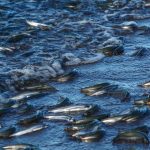The World Health Organization (WHO) has recently released a new guideline regarding the use of non-sugar sweeteners (NSS) for weight control and reducing the risk of noncommunicable diseases (NCDs). Based on a comprehensive review of available evidence, WHO recommends against the use of NSS for these purposes. The review findings indicate that NSS do not provide any long-term benefits in terms of reducing body fat in adults or children. Moreover, long-term use of NSS may have undesirable effects, including an increased risk of type 2 diabetes, cardiovascular diseases, and mortality in adults.
According to Francesco Branca, WHO Director for Nutrition and Food Safety, substituting free sugars with NSS does not effectively contribute to weight control in the long run. Instead, individuals should consider alternative methods to reduce their free sugars intake. One approach is to consume foods that naturally contain sugars, such as fruits, or opt for unsweetened food and beverages. Branca emphasizes that NSS are not essential dietary components and lack nutritional value. To enhance overall health, people should gradually decrease the overall sweetness of their diet, starting from early stages of life.
The guideline applies to everyone, with the exception of individuals with pre-existing diabetes. It encompasses all synthetic and naturally occurring or modified non-nutritive sweeteners that are not classified as sugars found in processed foods and beverages or sold separately for consumer use. Examples of common NSS include acesulfame K, aspartame, advantame, cyclamates, neotame, saccharin, sucralose, stevia, and stevia derivatives.
It’s important to note that the recommendation does not pertain to personal care and hygiene products containing NSS, such as toothpaste, skin cream, and medications. Additionally, low-calorie sugars and sugar alcohols (polyols), which contain calories and are therefore not classified as NSS, are also excluded from the recommendation.
Since the observed link between NSS and disease outcomes in the evidence may be influenced by various factors, such as the characteristics of study participants and complex patterns of NSS use, the recommendation has been assessed as conditional. This means that policy decisions based on this guideline may require substantial discussions tailored to specific country contexts, considering factors such as the extent of NSS consumption among different age groups.
The WHO guideline on NSS is part of a series of existing and upcoming guidelines on healthy diets. Its objective is to establish lifelong healthy eating habits, improve dietary quality, and reduce the global burden of NCDs. By adhering to these guidelines, individuals can make informed choices about their sugar intake, promoting better overall health and well-being.
By: Alex Wu









